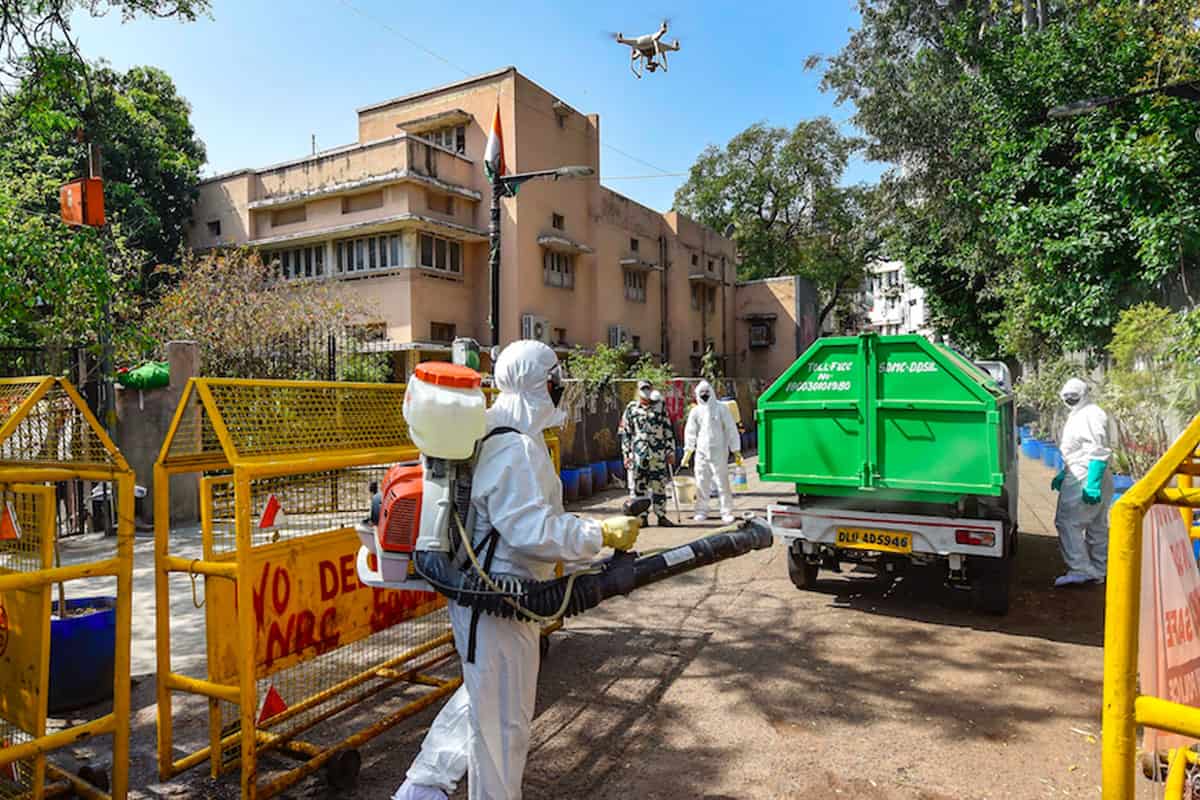
New Delhi: The Delhi High Court Tuesday asked the police to file a status report on a plea by the Waqf Board to re-open the Nizamuddin Markaz, where the Tablighi Jamaat congregation was held in March 2020 amid COVID-19 pandemic and has remained shut since then, as Shab-e-Barat and Ramzan are approaching in March and April.
Justice Mukta Gupta was informed by the central government counsel that a joint inspection of the markaz has already been conducted by the police and Delhi Waqf Board to ascertain its structural components and examine the issue of its re-opening.
The court listed the matter for further hearing on March 4.
The Waqf Board said in its application that the next date of hearing in the matter was April 21, however, the festival of Shab-e-Barat is approaching in the middle of March and the holy month of Ramzan is also beginning from April 2, depending upon the lunar sighting.
The mosque commonly known as Masjid Bangle Wali, comprising four floors along with place of ablution, would be required by the worshippers in view of the importance of the prayers during Shab-e-barat as well as during the holy month of Ramzan, senior advocate Sanjoy Ghose, representing the Waqf Board, said.
The Waqf Board’s application, filed through advocate Waqeeh Shafiq, said that last year during these two occasions the high court had permitted prayers in the mosque part and parcel of the waqf property under reference.
It said the current strain of COVID-19, Omicron, was not as severe and fatal as the Delta variant and as the conditions have improved, physical hearings of all courts have resumed, schools, clubs, bars and markets have also reopened, therefore, there is no impediment to direct the reopening of this waqf property.
Central government counsel Rajat Nair submitted that as far as opening of the markaz is concerned, it will be done in terms of the Delhi Disaster Management Authority (DDMA) order and added that he would file a status report in this regard.
The high court, on November 16 last year, had directed a joint inspection of the markaz by the police and Waqf Board.
The court, which was hearing the Waqf Board’s plea to re-open the markaz which has remained shut since March 31, 2020, had said that each party can nominate five persons to conduct the inspection and sought a report on it within 15 days.
The November order was passed after the petitioner’s counsel had stated that under the latest DDMA guidelines, all religious places were opened for visitors by then.
The court had observed that the property in question comprised three areas place of worship, place of congregation and residential area and therefore there could be no sweeping order with respect to the entire compound.
The central government’s counsel said that the entire property has to be earmarked and the DDMA order would apply to each zone accordingly.
The board, in its plea, has contended that even after unlock-1 guidelines permitted religious places outside containment zones to be opened, the Markaz — comprising the Masjid Bangle Wali, Madarsa Kashif-ul-uloom and attached hostel — continues to be locked up.
It has further contended that even if the premises was part of any criminal investigation or trial, keeping it “under lock as an out of bound area” was a “primitive method” of enquiry process.
Several FIRs were registered under the Epidemic Diseases Act, the Disaster Management Act, Foreigners Act and various provisions of the penal code in connection with the Tablighi Jamaat event held at the markaz and the subsequent stay of foreigners there during the COVID-19 lockdown last year.
Earlier, the court had questioned the Centre as to how long it intended to keep the Nizamuddin Markaz locked, saying it can’t be kept forever.
In its affidavit affirmed by the Deputy Commissioner of Police, Crime, the Centre had told the court that it was necessary and incumbent to preserve the markaz property as the investigation in the case registered for violation of the COVID-19 protocols has cross borders implications and involves nation’s diplomatic relationship with other countries.
On April 15, 2021, the court had allowed 50 people to offer namaz five times a day at Nizamuddin Markaz during Ramzan, saying there is no direction in the DDMA notification to close down places of worship.



